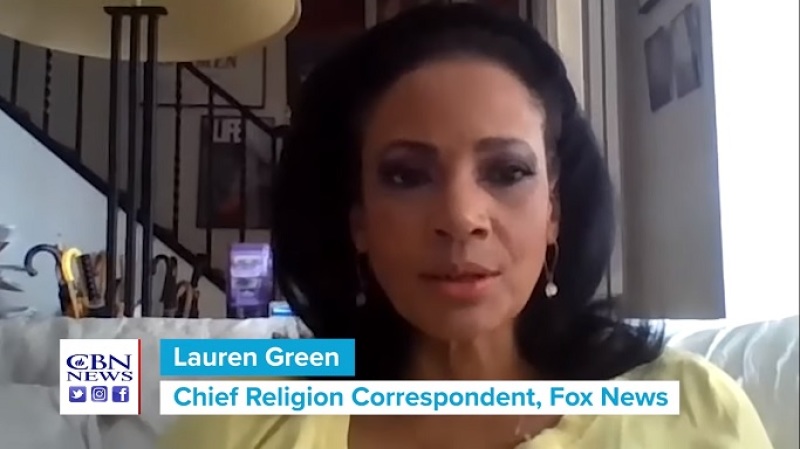
A religious correspondent sheds light on why the mainstream media is anti-Christian in its coverage of religion.
Lauren Green, Fox News' chief religion correspondent, said in an interview with Faithwire that after covering a wide range of subjects over the years, from 9/11 to the coronavirus outbreak and the fall of Afghanistan, Green says she can't imagine how much worse things would be if God didn't exist.
In spite of the fact that confronting such weighty issues may be intimidating, Green says she never worries about posing a question that God is unable to answer.
"I know there is no question you could ask that would destroy God," she maintained.
Most journalists, however, don't grasp these religious doctrinal subtleties, especially when it comes to Christianity, which is why Green was so ready to admit that the mainstream media had an "absolutely" anti-faith bias.
Pluralism is encouraged in the West, with the implication being that all faiths are the same. Green stated that a lot of journalists start with a faulty assumption.
Media outlets like CNN and MSNBC often make the error of projecting a secular humanist view of religion, which holds that all faiths are fundamentally similar.
So to this claim that all faiths are "equal," Green said: "That is absolutely not theologically true."
"For anybody that actually believes in their faith - and I don't care if you're Christian or Muslim or Jewish, Buddhist or whatever - you believe that your faith is the truth. So they can't all be equal."
But while all major religions urge for more morality, the "means of salvation," as Green put it, vary significantly.
Most mainstream media, she continued, do not grasp the essence of religious belief systems.
"One of the big mistakes mainstream media makes is that they don't understand the nature of most religions and they're trying to project a secular humanist understanding of religions, which is that all religions are basically the same," she explained.
Green's background
Growing up in a Christian household gave Green a fascination in Christian history and religion while studying music in college. She added that she still understands a lot about faith today through that perspective.
She said that music helps her make sense of the world.
"And when I became a journalist, it was as if I was trying to translate into a different language, from the world of music into the world of words. So faith, to me, was that bringing together of those two worlds," she elaborated.
While she never questioned God's existence, 63-year-old Green said that she had to wrestle with her own understanding of who God is and what such a deep reality meant for human life. Because she was raised in a Christian culture, asking questions of it was a strange idea to many people, Green felt it was especially essential.
She remembered a time when her two worlds met, and music profoundly influenced her understanding of God.
Green went to Ethiopia with the Abyssinian Baptist Church of New York City in 2007, which is one of the country's oldest African American churches. She recalled doing a harmonic analysis of the Hallelujah Chorus from Handel's "Messiah" in her Addis Ababa hotel room and having a "revelation" happen to her.
"It was like a revelation that hit me that I realized I saw the 10 Commandments really displayed in the harmonic analysis of the Hallelujah Chorus, and it just hit me, 'That can't be a mistake,'" she proclaimed.























